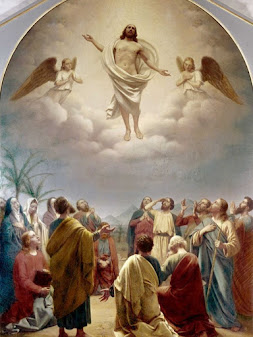Homily for Palm Sunday, March 28, 2021. Gospel of St. Mark 14:1-15:47. Theme: What Kind of Savior Do I Expect?
It’s always such a mysterious thing to me when I think about the Triumphant Entry of Jesus into Jerusalem on the first Palm Sunday. The crowd went from cheering and giving Him literally a King’s welcome, to screaming out bloody murder for his execution just a few days later on Good Friday. However, it seems to me that we can’t be too quick to judge or point fingers. After all, we have the advantage of knowing who Christ really was and we know how the whole story ends!
So, let’s try and put ourselves in the shoes of that crowd in Jerusalem for a moment. For centuries, the Jewish people had passed on prophecies about the Messiah, the Christ, God’s Anointed One. They told and retold hopeful stories of how he would be a mighty Warrior, a national Hero, a powerful King. He was supposed to be their Rescuer and Liberator who would victoriously eject the cruel Roman oppressors from the Promised Land. That crowd of people looked forward to the day when the Christ would bring to Israel all that they been praying for and imagined. It was to be the best and happiest time of their lives as a nation, as God’s people.
When they learned that Jesus of Nazareth, whom many had thought was the Christ, had been taken prisoner, beaten and tortured by the enemy, all their hopes for this Hero-King were trashed. Turns out He wasn’t their hoped-for Promised One after all. Or to put it better, turns out he was not the kind of Messiah, not the kind of Liberating Savior, that they had wanted, that they were expecting.
You see, a huge part of the problem, a big blind spot in their spiritual vision, was that their idea of liberation and expectations for happiness was limited to worldly success and political nationalism. It wasn’t as far-reaching and all-encompassing as was God’s idea.
For centuries, their leaders had been reading and interpreting the Scriptures about the Messiah in a way that they thought best. They were searching the Scriptures for what they wanted to see in them. They were praying to God for what they wanted to happen in their nation, rather than asking that his Kingdom come, whatever that might look like.
It’s so very easy for us to judge and condemn the screaming crowd of Jerusalem. And yet…before we point that finger at them…we have to stop and examine our own attitudes towards Jesus and how he acts in our lives. We have to ask ourselves quite honestly if we also read and interpret Gods Word in our favor, seeing in it only what we want to see, and ignoring the things that we prefer not to hear. Do we mean it when we pray in the Our Father for God’s will to be done in our lives?
Let’s each ask ourselves on this Palm Sunday: have I ever shaken a fist at God, so to speak, because he wasn’t acting like the kind of Savior I expected Him to be in my life? Have I grumbled about Him because he was not carrying out the plans I intended, the hopes I set my heart on? Do I trust him enough to be at peace in every circumstance, and especially those that are out of my control, knowing that he has me safely in the palm of his hand, in the recesses of his heart?
As we celebrate Palm Sunday and proceed further into Holy Week, let’s pray for the grace to be faithful to Christ during these most special days of the entire year and, of course, for all our lives.
Let’s thank Jesus for the most precious Gift of his Body and Blood in the Eucharist, which he gave us on that first Holy Thursday, and through which we remain united with him and with one another.
Let’s venerate the holy and life-giving Cross of Jesus in our hearts, as well as in our liturgy on Good Friday with devotion and confidence, remembering that our beloved Brother and Lord has loved us to the end.
And let’s ask the gloriously Risen Lord Jesus to bless us with a special Easter gift of trust in him, so that we might remain faithful no matter how things may seem and be open enough to his grace to allow God to just be God in our lives.






